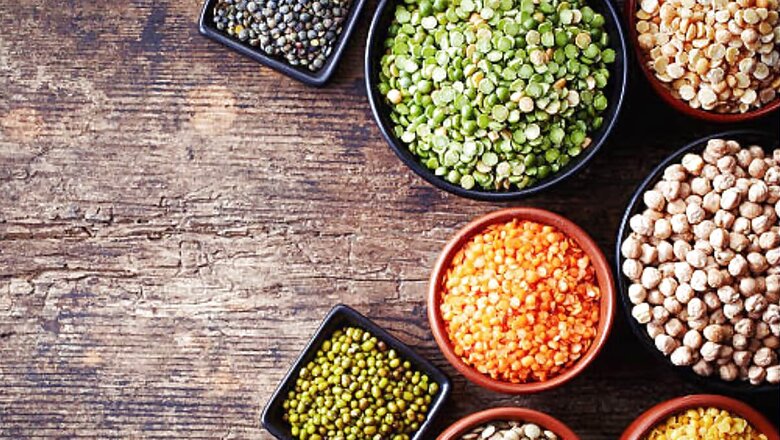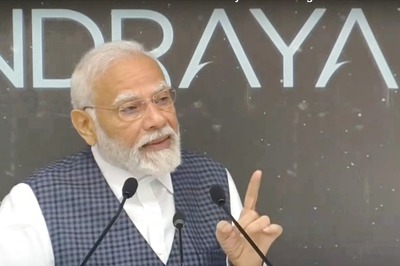
views
The Indian Council of Medical Research (ICMR) last month released dietary guidelines to encourage healthy eating habits among citizens. Through the 17 guidelines, the apex medical research body stressed that overcooking or boiling the pulses for too long reduces the quality of essential proteins present in them. Reasoning the same, ICMR noted that cooking pulses for a longer time leads to “loss of lysine.” Not only this but ICMR also revealed that the best way to improve the nutritional value of a meal is to prepare it in a pressure cooker or simply boil it. ICMR said, “Pulses should not be overcooked or boiled for too long as this reduces the quality of proteins. Longer cooking causes a drop in the nutritive value of pulses as it results in the loss of lysine.”
While reasoning why one must prepare pulses in the pressure cooker, ICMR stated that the cooking method destroys anti-nutritional factors like enzymes. It is worth noting that enzymes don’t allow essential nutrients to get digested. The guidelines highlighted, “Boiling or pressure cooking is the best way to improve the nutritional quality of pulses since anti-nutritional factors (enzyme inhibitors that do not allow nutrients to get digested) are destroyed during boiling and pressure cooking. Hence, these methods increase the digestibility and therefore protein availability.”
Explaining further, ICMR pointed out that boiling cereals and legumes decreases the concentration of phytic acid, which hinders the absorption of minerals. Therefore, it makes crucial minerals like calcium, magnesium, iron and zinc absorbable at the time the digestion process takes place. It advised adding enough water when boiling pulses to improve the nutritional quality of pulses.
“Remember to add only the required amount of water during boiling. B complex vitamins and vitamin C may be lost if the cooking water after boiling is discarded. Prolonged boiling also results in the loss of vitamins. Mineral content is not dramatically altered with boiling,” ICMR added.
ICMR also recommended steaming the green vegetables to increase the level of antioxidants and polyphenols in them. The guidelines read, “In contrast to boiling, during the process of steaming, the food merely comes into contact with steam. Direct contact between vegetable tissue and water is thus avoided, which significantly minimizes the loss of water-soluble vitamins and phytochemical compounds through leaching.”
ICMR in collaboration with the National Institute of Nutrition has released 17 new dietary guidelines tailored to Indians of various age groups. The guidelines emphasised the importance of a balanced diet, encouraging the consumption of vegetables, fruits, whole grains and lean meats while advising moderation in intake of oil, sugar and salt.




















Comments
0 comment